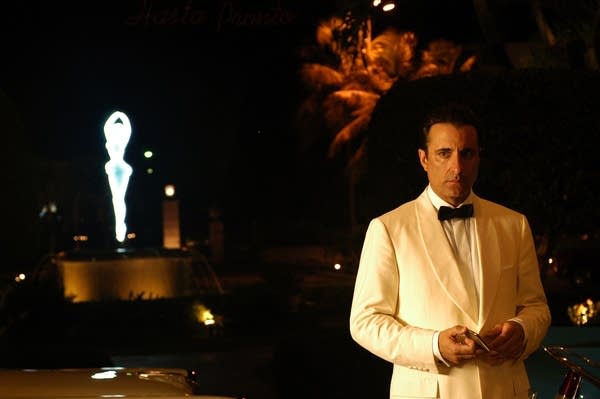Andy Garcia's "Lost City"
Go Deeper.
Create an account or log in to save stories.
Like this?
Thanks for liking this story! We have added it to a list of your favorite stories.

Andy Garcia says he has some very specific memories of his life in Havana. He remembers his parents house, and the beautiful beach nearby where they went to play.

He doesn't remember much about the upheaval which led to the departure of the corrupt and brutal Batista regime, nor Fidel Castro's subsequent rise to power. It was different for his parents.
Garcia's departure began what he admits is a life-long obsession with Cuban culture, especially the island's music. He collected recordings and became an accomplished musician himself.
As his career took off in Hollywood, he began toying with the idea of a "Casablanca" style movie set in Havana, just before the revolution.
Turn Up Your Support
MPR News helps you turn down the noise and build shared understanding. Turn up your support for this public resource and keep trusted journalism accessible to all.

A friend suggested he read the work of exiled Cuban writer Guillermo Cabrerra Infante, which he did. Thus, in the late 1980s, when Paramount asked if he had any projects he wanted to develop, he knew exactly where to go to find a writer.
That's when Garcia left Paramount and got into the independent movie business. He intended to play the youngest brother in the script, and get friends to do the music.
But it took more than a decade and a half to complete the film. It was long enough for him to have to play the oldest brother, and he learned to play the piano so well he composed large parts of the soundtrack.

"The Lost City" follows the fortunes of a wealthy Havana family split by the revolution. They all want Batista to go, but are divided over what should come next. Garcia plays Fico, the brother, who runs a successful nightclub.
"The Lost City" is crammed with music and history. Garcia says it was a challenge to create a story that would satisfy both someone with a deep knowledge of Cuban complexities, and someone with no historical knowledge at all.
Garcia says he has already faced political criticism from Cubans living in the U.S., but he sees that as part of the package when dealing with the emotive issue of his homeland.
Garcie says he would like to go back someday, but only under a democratic regime. He says since he left as a child, he's visited Cuba once, in 1995. He went to do a concert for 16,000 refugees staying at the U.S. naval base on the island.





